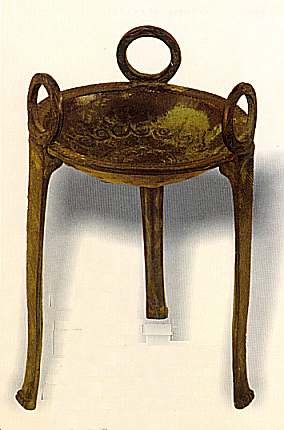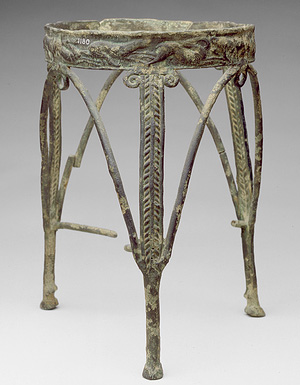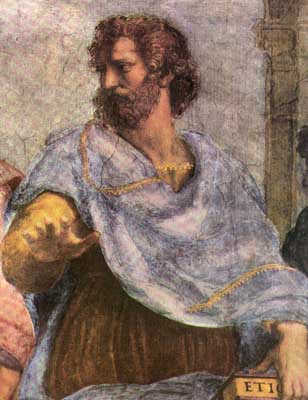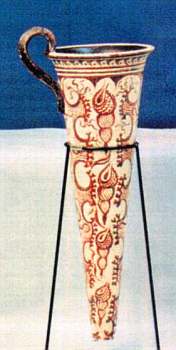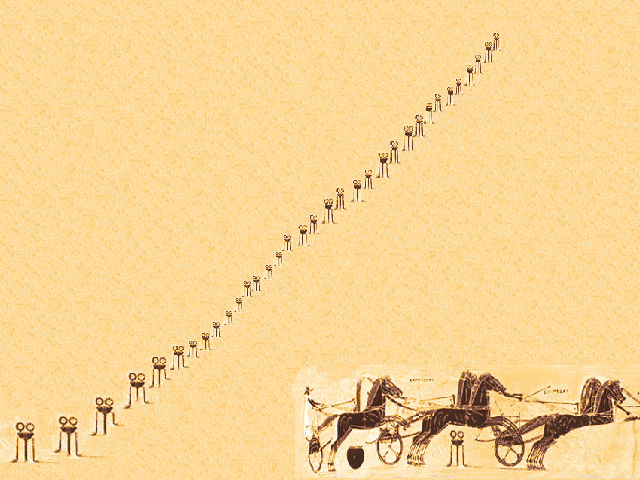TRIPODICS DICTIONARY: Definitions of terms.
- Tripod (n)
- Alt def. an inanimate instrument
that can accomplish its own work,
obeying or anticipating the will of others,
- Tripodics (n)
- the study and programming of automata (tripods).
TRIPODICS BIBLIOGRAPHY: Historical and literary references to tripods (automata):

- [circa ??? B.C.E.]
Homer,
Iliad, 18:398,
"Of their own motion they entered the conclave of Gods on Olympus"
(referring to the tripods made by Hephaestus,
bringing nectar and ambrosia to the mountaintop).
(Lombardo translation.)
This is one of the earliest definitive references to automata!
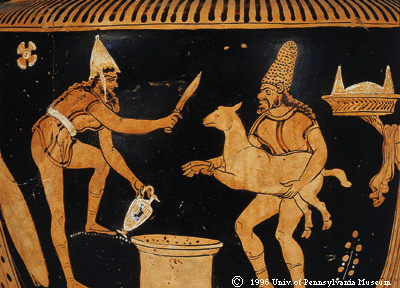
20 stools or tripods that move of their own accord
to and from the feasts on Mount Olympus
(Iliad, 18.372)
The magical three-legged tables (tripods) that he gave to the gods were also his invention. When they
gathered to make important decisions, the tripods would automatically go behind each god. When a meeting had
finished, each tripod would immediately return to the palace of their owner.
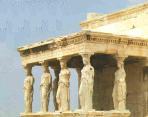
- [ca. -401] Socrates,
In Plato's Meno
Daedalus is a skilled sculptor
whose statues seemed to be so alive
that they could run away unless properly tied.

- [circa 230 B.C.E.] Aristotle,
The Politics
"... as if a shuttle should weave of itself,
and a plectrum should do its own harp playing."
- [1920] Karel Cāpec ,
RUR,
a novel about "Rossum's Universal Robots"
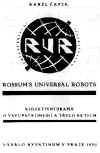
(The Czech word robota means
"drudgery" or "servitude".)

- [1963] Isaac Asimov and Harlan Ellison ,
I, Robot,
"R. Daneel Olivaw" and other "positronic brains" described in many novels,
during the past half-century.
(Note: Asimov was born in the same year that Cāpec produced RUR.)
PHILOSOPHY: The benefits of automata.
|
